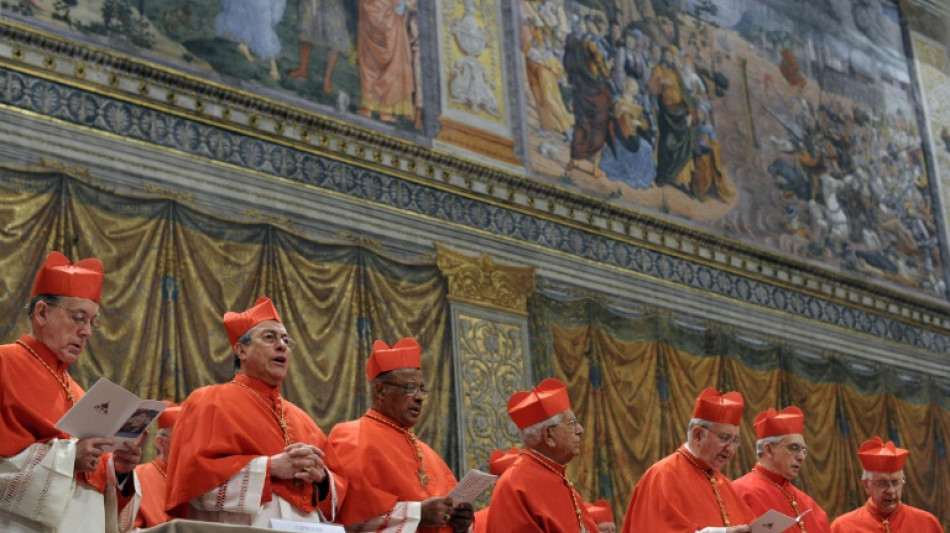
-
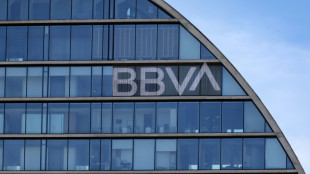 BBVA, Sabadell clash heats up ahead of takeover deadline
BBVA, Sabadell clash heats up ahead of takeover deadline
-
World economy not doing as badly as feared, IMF chief says
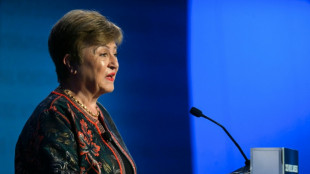
-
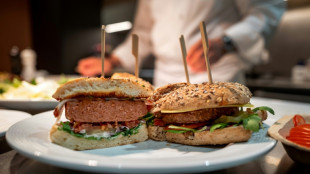 Veggie 'burgers' face the chop as EU lawmakers back labeling ban
Veggie 'burgers' face the chop as EU lawmakers back labeling ban
-
Former FBI chief James Comey pleads not guilty in case pushed by Trump
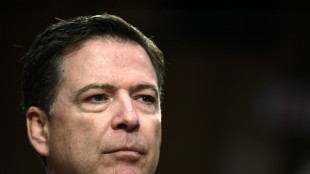
-
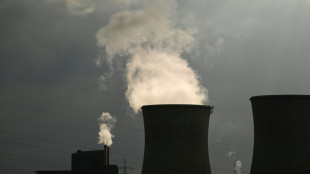 Germany raises growth forecasts, but warns reforms needed
Germany raises growth forecasts, but warns reforms needed
-
Serie A chief blasts Rabiot's criticism of Milan match in Australia
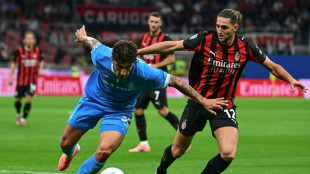
-
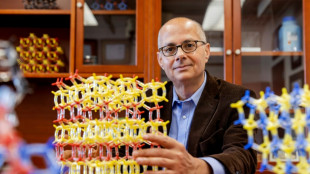 From refugee to Nobel: Yaghi hails science's 'equalising force'
From refugee to Nobel: Yaghi hails science's 'equalising force'
-
De Minaur, Auger-Aliassime through to Shanghai quarter-finals
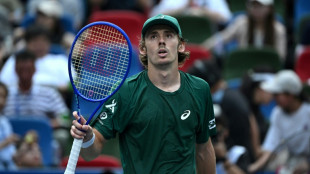
-
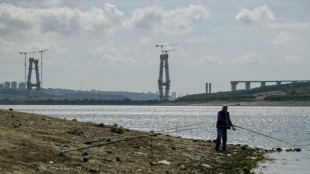 Canal Istanbul stirs fear and uncertainty in nearby villages
Canal Istanbul stirs fear and uncertainty in nearby villages
-
Root backs England to end Ashes drought in Australia
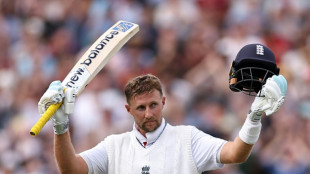
-
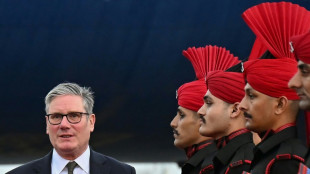 British PM Starmer hails India opportunities after trade deal
British PM Starmer hails India opportunities after trade deal
-
England captain Kane could miss Wales friendly
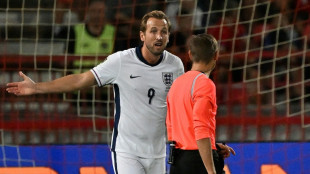
-
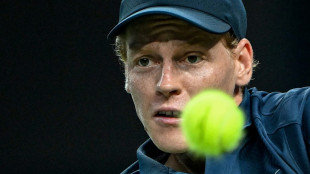 Tennis increases support for players under corruption, doping investigation
Tennis increases support for players under corruption, doping investigation
-
Russia says momentum from Putin-Trump meeting 'gone'
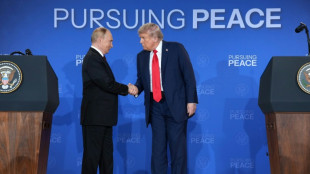
-
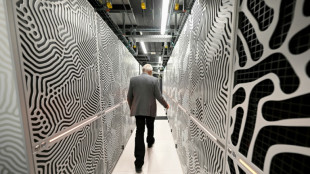 EU wants key sectors to use made-in-Europe AI
EU wants key sectors to use made-in-Europe AI
-
De Minaur, Rinderknech through to Shanghai quarter-finals
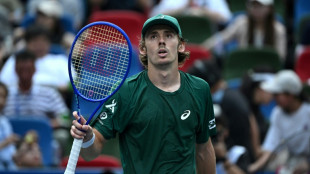
-
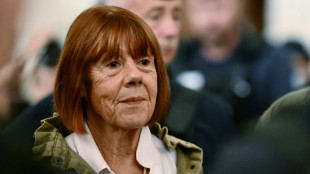 Gisele Pelicot says 'never' gave consent to accused rapist
Gisele Pelicot says 'never' gave consent to accused rapist
-
Thousands stranded as record floods submerge Vietnam streets
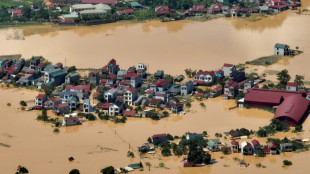
-
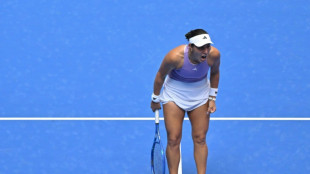 Sabalenka battles to keep Wuhan record alive, Pegula survives marathon
Sabalenka battles to keep Wuhan record alive, Pegula survives marathon
-
Trio wins chemistry Nobel for new form of molecular architecture
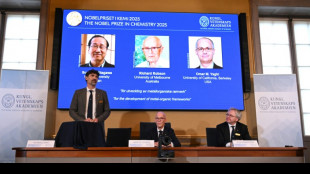
-
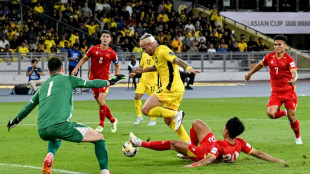 Tarnished image and cheating claims in Malaysia football scandal
Tarnished image and cheating claims in Malaysia football scandal
-
Family affair as Rinderknech joins Vacherot in Shanghai quarters
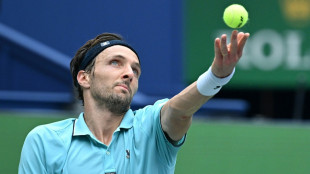
-
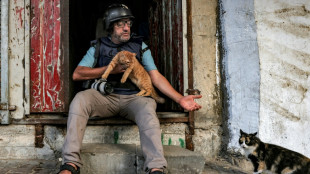 New documentary shows life in Gaza for AFP journalists
New documentary shows life in Gaza for AFP journalists
-
Tennis stars suffer, wilt and quit in 'brutal' China heat
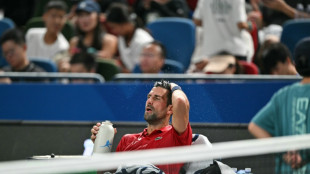
-
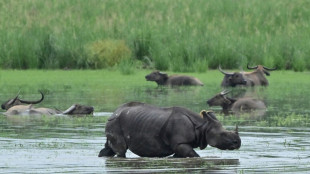 Wildlife flee as floods swamp Indian parks
Wildlife flee as floods swamp Indian parks
-
Record flooding hits Vietnam city, eight killed in north
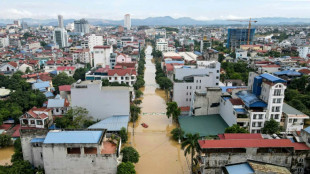
-
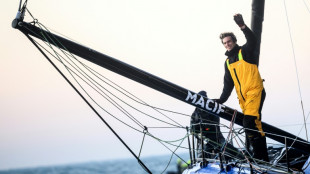 Battling cancer made Vendee Globe win 'more complicated', says skipper Dalin
Battling cancer made Vendee Globe win 'more complicated', says skipper Dalin
-
England, Portugal, Norway closing in on 2026 World Cup
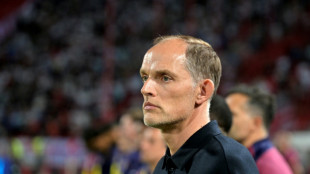
-
 Child protection vs privacy: decision time for EU
Child protection vs privacy: decision time for EU
-
Bear injures two in Japan supermarket, man killed in separate attack
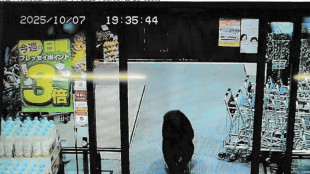
-
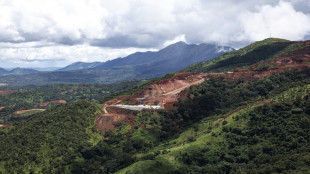 In Simandou mountains, Guinea prepares to cash in on iron ore
In Simandou mountains, Guinea prepares to cash in on iron ore
-
Morikawa says not to blame for 'rude' Ryder Cup fans
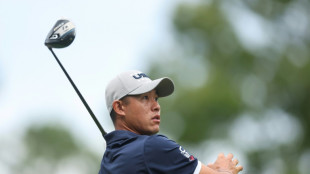
-
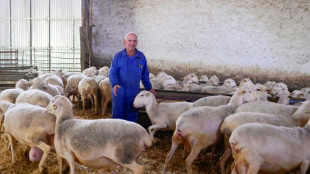 Far right harvests votes as climate rules roil rural Spain
Far right harvests votes as climate rules roil rural Spain
-
'Return to elegance': highlights from Paris Fashion Week
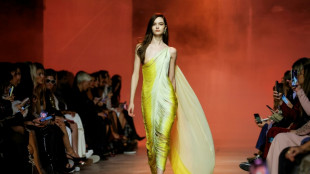
-
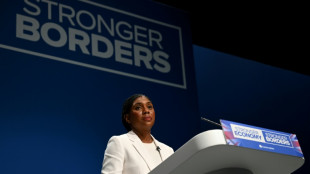 Britain's storied Conservative party faces uncertain future
Britain's storied Conservative party faces uncertain future
-
New Zealand's seas warming faster than global average: report
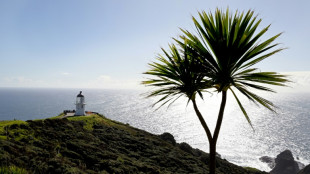
-
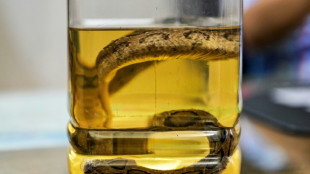 Snakebite surge as Bangladesh hit by record rains
Snakebite surge as Bangladesh hit by record rains
-
Yankees deny Blue Jays playoff sweep as Mariners beat Tigers
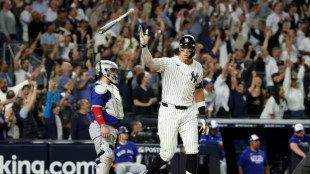
-
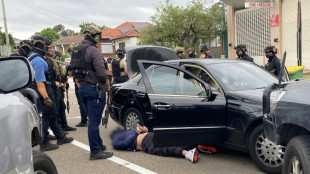 Australia police foil 'kill team' gang hit near daycare centre
Australia police foil 'kill team' gang hit near daycare centre
-
US, Qatar, Turkey to join third day of Gaza peace talks in Egypt
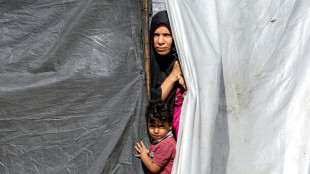
-
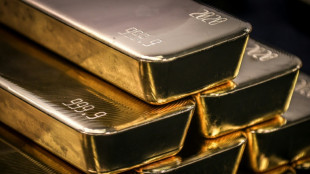 Gold tops $4,000 for first time as traders pile into safe haven
Gold tops $4,000 for first time as traders pile into safe haven
-
Indian garment exporters reel under US tariffs
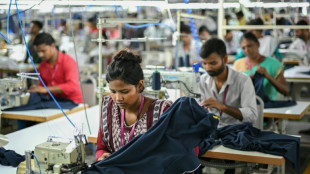
-
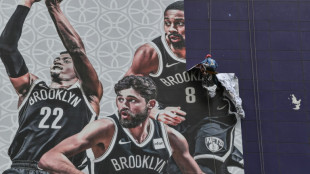 NBA back in China after six-year absence sparked by democracy tweet
NBA back in China after six-year absence sparked by democracy tweet
-
Energy storage and new materials eyed for chemistry Nobel
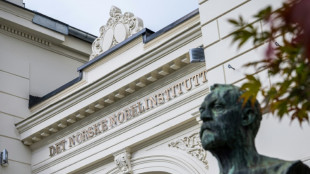
-
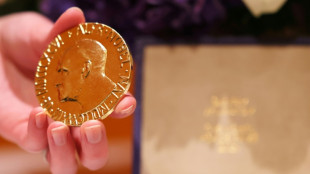 Trump unlikely to win Nobel Peace Prize, but who will?
Trump unlikely to win Nobel Peace Prize, but who will?
-
Qatar, Turkey to join third day of Gaza peace talks in Egypt
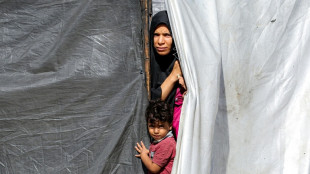
-
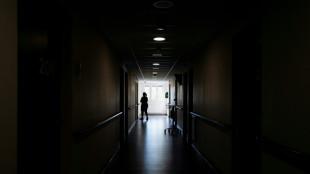 Study finds women have higher genetic risk of depression
Study finds women have higher genetic risk of depression
-
Dolly Parton's sister calls for fan prayers over health issues
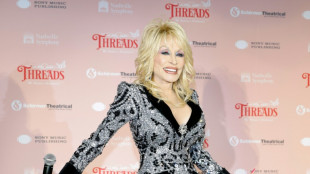
-
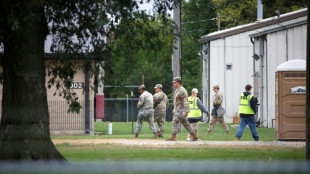 On Trump's orders, 200 troops from Texas arrive in Illinois
On Trump's orders, 200 troops from Texas arrive in Illinois
-
Two bodies found, two missing after Madrid building collapse
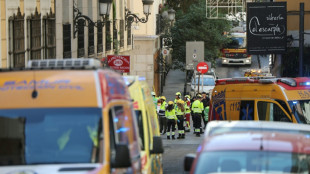
| RBGPF | -1.4% | 77.14 | $ | |
| CMSC | 0.04% | 23.75 | $ | |
| JRI | 0.46% | 14.135 | $ | |
| NGG | -0.11% | 73.8 | $ | |
| BCE | -0.04% | 23.28 | $ | |
| RYCEF | -1.24% | 15.35 | $ | |
| RIO | 2.17% | 67.72 | $ | |
| VOD | 0.53% | 11.33 | $ | |
| SCS | 0.41% | 16.93 | $ | |
| BCC | 1.1% | 75.35 | $ | |
| GSK | 0.48% | 43.71 | $ | |
| RELX | 0.85% | 45.83 | $ | |
| BTI | -0.78% | 51.58 | $ | |
| CMSD | -0.29% | 24.33 | $ | |
| AZN | 0.02% | 85.885 | $ | |
| BP | -0.39% | 34.835 | $ |

What we know ahead of the conclave
Cardinals from around the world will meet under Michelangelo's frescoes in the Sistine Chapel on May 7 to elect a new leader of the Catholic Church after Pope Francis's death.
Dating back to the Middle Ages -- when the idea of sovereigns being elected was somewhat revolutionary -- the gathering, known as conclave, has an air of mystery about it, as all participants are sworn to secrecy for life.
Here are some facts:
- Where and when -
The conclave will begin on May 7 and last until a new pontiff is elected.
While it took almost three years to appoint Pope Gregory X in the 13th century -- the longest conclave to date -- modern gatherings are usually a matter of days.
Both Francis and his predecessor, Benedict XVI, were elected after two days of voting.
Cardinals will gather and cast their ballots in the Sistine Chapel, a Renaissance jewel adorned with Michelangelo's celebrated frescoes, located in the Vatican City's Apostolic Palace.
- Who takes part -
All the Church's 252 cardinals were called back to Rome following the death of Francis on April 21, and 224 made it for the funeral last Saturday.
They all had a say in choosing a date for the conclave, but only 135 are expected to take part, as only those aged under 80 are eligible to vote for a new pope.
Most of the so-called "cardinal electors" were appointed by Francis -- around 80 percent. They hail from all corners of the globe, with many from under-represented regions.
But Europe still has the largest voting bloc, with 53 cardinals, compared to 27 cardinal-electors from Asia and Oceania, 21 from South and Central America, 16 from North America and 18 from Africa, according to the Vatican.
Italy is the most represented nation with 17 electors. The United States has 10, Brazil seven and France five.
- Secrecy and security -
The word conclave comes from the Latin for "with key", a reference to the lockdown imposed on cardinals staying in the Santa Marta residence at the Vatican until they elect a new pope.
The deliberations of a conclave are held in strictest secrecy on pain of instant excommunication. Smartphones and any Internet access are off-limits and cardinals cannot read newspapers, listen to the radio or watch TV.
Any contact with the outside world is banned, unless for "grave and urgent reasons", which need to be confirmed by a panel of four peers.
Only cardinal electors are allowed to be present during the actual voting, although others including doctors, clerical assistants and housekeeping staff are allowed to enter at different times.
- How voting unfolds -
Cardinals hold four ballots a day -- two in the morning and two in the afternoon -- until one candidate wins two-thirds of the votes.
At the end of each session, the ballots are burned in a special stove. With the addition of chemicals, the stove's chimney stack emits black smoke if no one has been elected or white smoke if there is a new pope.
If no new pope is elected after three days, cardinals take a break and hold a day of prayer and talks.
Any single Catholic adult male can be elected pope, although in practice it is almost always one of the cardinals.
Sick cardinals are allowed to cast their ballots from their beds.
- What happens next -
The winning candidate is asked by the Dean of Cardinals if he accepts the pontificate and, if the answer is yes, what name he chooses as pontiff.
The new leader of the world's 1.4 billion Catholics then comes out onto a balcony overlooking the square as a senior cardinal cries: "Habemus Papam" (We have a pope)!
P.Vogel--VB
